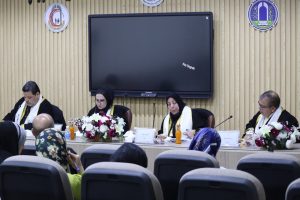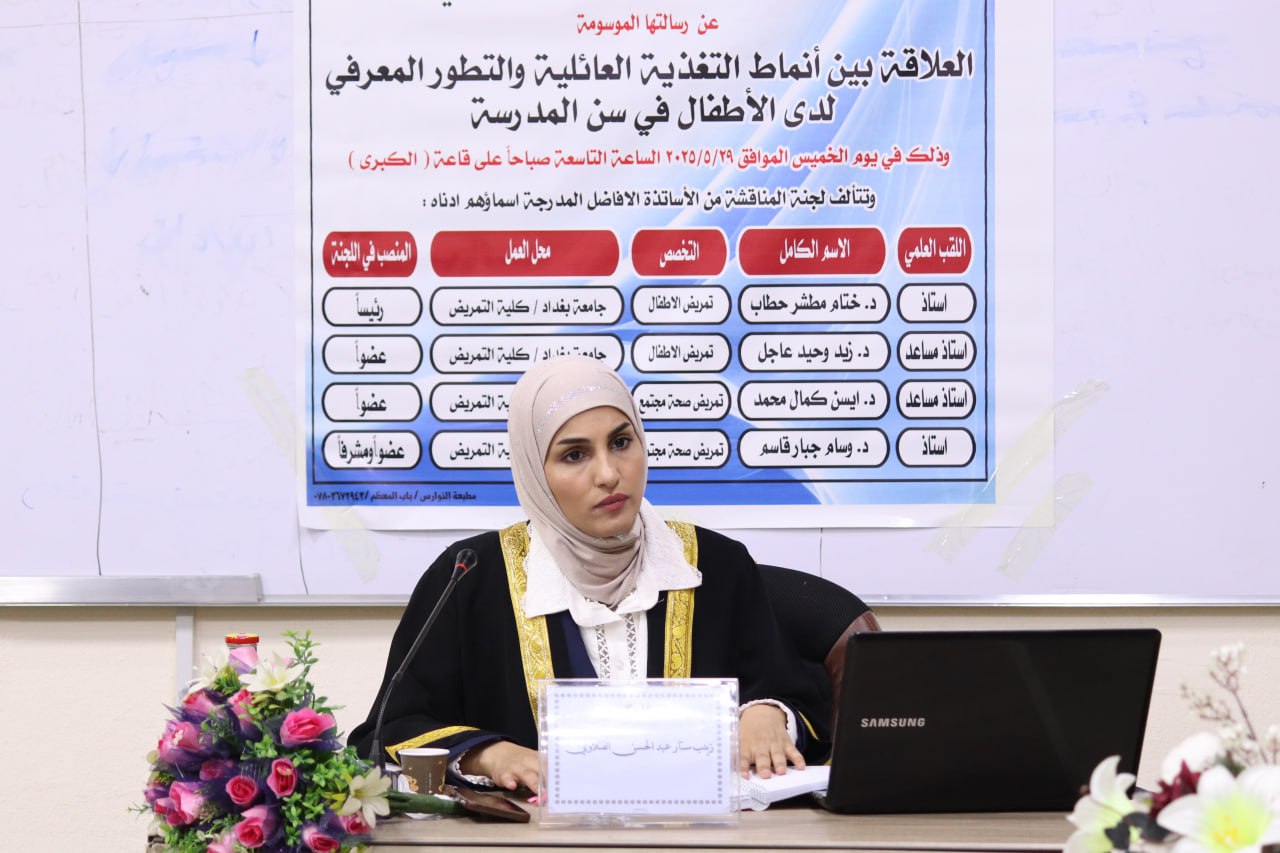The Faculty of Nursing at the University of Baghdad discussed a master’s thesis entitled “The relationship between family nutrition patterns and cognitive development in school-age children”. Submitted by the student Zainab Star Abdul Hassan Al-Fatlawi under the supervision of Prof. Dr. Wissam Jabbar Qasim in the Grand Hall of the College
The study aimed to evaluate the dietary patterns of families and their impact on the cognitive development of children in the school age group.
The study revealed that the majority of school-age children follow “good” eating behaviors, and that their cognitive development is moderate. More importantly, the results showed a strong and important relationship between different family feeding patterns and cognitive development of school-age children.
The study recommends to encourage health education initiatives that target families and students alike. These initiatives should focus on the types of food the family consumes, emphasizing the importance of healthy cooking methods (such as home-cooked meals instead of takeaway meals). These recommendations not only contribute to improving children’s health and cognitive development, but also directly support the achievement of the second Sustainable Development Goal, by promoting proper nutrition and nutritional awareness.
This study is closely aligned with the second goal of the Sustainable Development Goals to completely eradicate hunger, achieve food security, improve nutrition and promote sustainable agriculture










